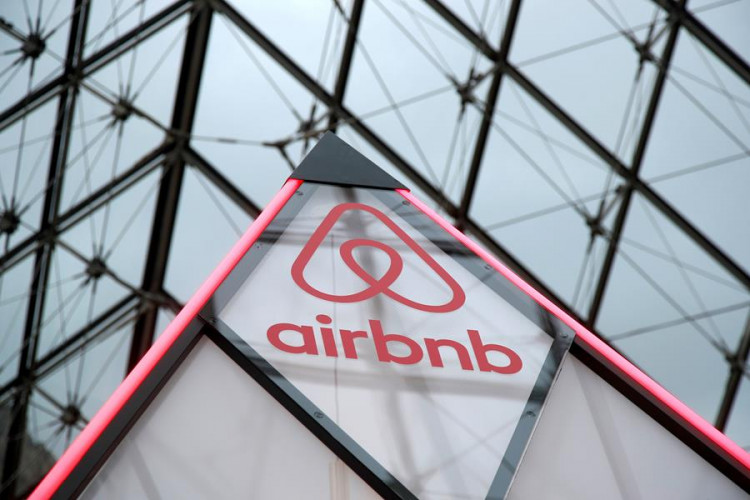Airbnb's shares fell sharply by 16.64% in after-hours trading on Tuesday, following the company's announcement of second-quarter earnings that missed analyst expectations and a warning of slowing demand from U.S. customers. The company reported a net income of $555 million, or 86 cents per share, down from $650 million, or 98 cents per share, in the same quarter last year. Revenue for the quarter increased by 11% to $2.75 billion, slightly exceeding the expected $2.74 billion.
The San Francisco-based vacation rental company also provided a cautious outlook for the third quarter, forecasting revenue between $3.67 billion and $3.73 billion, below the analyst estimate of $3.84 billion. Airbnb highlighted a troubling trend of shorter booking lead times, which suggests that travelers are waiting until the last minute to book due to economic uncertainty.
"Your letter and Delta's public comments are incomplete, false, misleading, and damaging to Microsoft and its reputation," stated Microsoft lawyer Mark Cheffo in a letter to Delta attorney David Boies. This reflects an escalating dispute between the tech giant and Delta Air Lines over a recent technology outage that the airline claims cost it $500 million. Microsoft has refuted these claims, arguing that Delta's key IT system is likely serviced by other technology providers.
Airbnb's CEO, Brian Chesky, addressed these concerns during an investor call, noting that the company had observed several periods of volatility over the past few years when consumers were hesitant to book long in advance. "We continue to experience record demand for new AI infrastructures," Chesky said, emphasizing the company's resilience despite the challenges.
The company also reported that its average daily rate (ADR) increased by about 2% to $169.53 during the quarter. However, the net income margin, which measures profit per dollar of revenue generated, decreased to 20% from 26% a year ago. This decline in margin indicates that while Airbnb's revenue has grown, the company is making less profit on each booking.
The number of nights and experiences booked reached 125.1 million, marking a 9% increase from the previous year. Notably, the highest growth in bookings was seen in Latin America and the Asia-Pacific region, with increases of 17% and 19%, respectively.
The company also announced that it had removed over 200,000 low-quality listings as part of its ongoing effort to improve the quality of its offerings. This move is seen as a strategic effort to enhance customer satisfaction and maintain the integrity of the Airbnb platform.
Investor sentiment was further dampened by concerns about the broader economic environment. The Federal Reserve's decision to hold off on rate cuts until at least next month has heightened worries about consumer spending. This sentiment was echoed by other companies, such as McDonald's, which recently reported that consumers were feeling the economic pinch, resulting in a 1% decline in same-store sales.
Morningstar equity analyst Dan Wasiolek commented on Airbnb's outlook, stating, "The slowdown guided for the third quarter echoes what others have noted in the travel industry. Airbnb is not immune to a travel demand slowdown, but it remains a well-positioned brand for the long term."
Despite the recent downturn, Airbnb's shares have seen significant growth over the past year, driven by strong demand for vacation rentals and the company's strategic initiatives. The stock, which closed at $618.94 on Tuesday, had surged 246% in 2023 and was up 117% year-to-date.
Looking ahead, Airbnb remains optimistic about its prospects, projecting first-quarter revenues between $6 billion and $7 billion, above Wall Street's estimate of $5.46 billion. The company expects adjusted earnings per share to range between $6.69 and $8.27, with a midpoint below the consensus estimate of $7.58.
As Airbnb navigates these challenges, the company's ability to adapt to changing consumer behaviors and economic conditions will be crucial. The travel industry's recovery from the pandemic remains uneven, and companies like Airbnb must continue to innovate and respond to evolving market dynamics to maintain their competitive edge.





